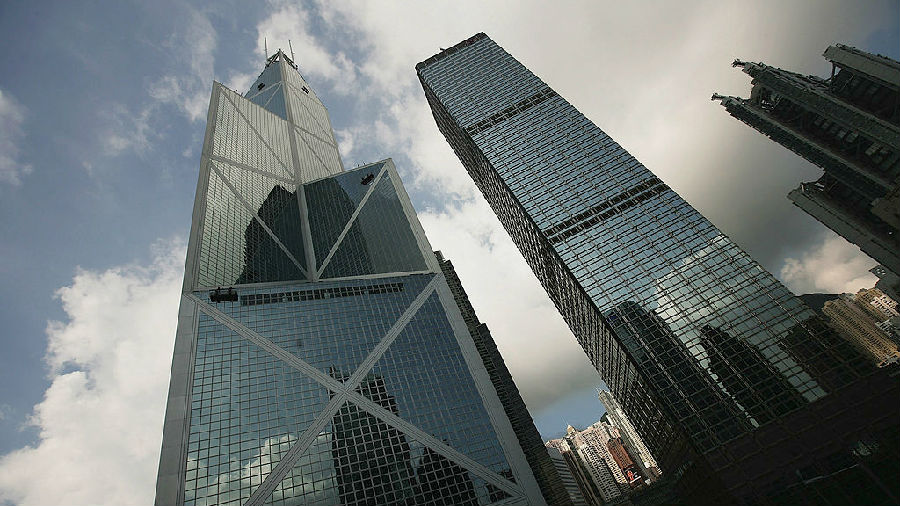As Robert Kuok completed his memoirs in 2003, he began to have second thoughts. Worried that he had been too critical in parts — especially of some people he felt had cheated him over the years — the Chinese-Malaysian tycoon decided that he needed to “clean up” the manuscript.
2003年,当郭鹤年(Robert Kuok)完成他的自传时,他开始产生疑虑。他担心,书中的某些内容批评太多,特别是对那些他觉得多年欺骗他的人,这位马来西亚华裔大亨决定,需要“清理”底稿。
“This took time because except for very short spells, I never retired from managing my companies,” Mr Kuok said via email.
郭鹤年通过电邮说:“这很费时,因为除了一些短暂的间隙,我从未放弃管理我的公司。”
Some people close to Mr Kuok also thought that it was perhaps not the most opportune time for him to publicly criticise the Malaysian government’s “excessive” racial preference policies that discriminate against Chinese and Indian communities.
一些熟悉郭鹤年的人还认为,那可能不是他公开批评马来西亚“过度”种族优先政策的合适时机,这些政策歧视华裔和印度裔社区。
Fifteen years later, the tycoon’s memoirs are finally out. Published in November, they have indeed stirred up controversy in his native Malaysia, where he once controlled 85 per cent of sugar imports and helped found its national shipping line. As one senior member of the ruling United Malays National Organisation said shortly after publication, “anybody who finds success in Malaysia shouldn’t forget where they came from”.
15年后,这位大亨的自传终于在去年11月出版。该书的确在他的出生地马来西亚激起了争议,在马来西亚,他曾控制85%的糖进口,并帮助创建了该国的国家航运公司。正如马来西亚执政党马来民族统一机构(United Malays National Organisation)的一位高官在自传出版后不久所说的,“在马来西亚取得成功的任何人都不应该忘本”。
Mr Kuok left Malaysia for Singapore before finally settling in Hong Kong in 1979 — a move that he attributes in his memoirs to the then “punitive” tax rates in the two Southeast Asian countries. With a fortune estimated to be worth $14.2bn, the founder of Kerry Holdings, the commodities-to-property group, is now the territory’s sixth-richest person.
当年,郭鹤年离开马来西亚到新加坡发展,最后于1979年在香港扎根——他在自传中把此举归因于这两个东南亚国家当时的“惩罚性”税率。这位身价达到142亿美元的大亨现在是香港第六大富豪,是横跨大宗商品到房地产业务的集团嘉里控股(Kerry Holdings)的创始人。
The 94-year-old’s new-found willingness to court such controversy is a sign that, though “still remarkably spry” according to one person who knows him well, he has at least one eye on posterity.
这位94岁的大亨变得愿意面对争议表明,尽管据一位非常了解他的人称,他“仍然相当活跃”,但他至少在一定程度上关注后世子孙。
Mr Kuok is not alone. Many of Hong Kong’s richest families are preparing for a generational changing of the guard. Unfortunately for the UK colony turned Chinese “special administrative region”, the sons and daughters who will inherit Hong Kong’s biggest fortunes will continue to dominate an economy defined by rent-seeking monopolies.
郭鹤年并不是唯一一个。很多香港最富有的家族正准备向下一代交棒。对于以前是英国殖民地、现在是中国“特别行政区”的香港而言,不幸的是,将继承香港最多财富的这些后代们,将继续主宰一个以寻租垄断为主要特色的经济体。
Li Ka-shing, Hong Kong’s most global tycoon, is reportedly preparing to step aside as chairman of CK Hutchison Holdings when he turns 90 in July.
据报道,全球意识最强的香港大亨李嘉诚准备在今年7月年满90岁时,卸任长江和记实业(CK Hutchison Holdings)董事长一职。
Stanley Ho, 96, has been incapacitated by frail health in recent years. The carve-up of SJM Holdings, his transportation, property and Macau gambling empire, has featured Winnie, an estranged sister; 17 children, the most prominent of whom is Pansy, 55, and Angela Leong, 56, his fourth wife.
最近几年,96岁的何鸿燊(Stanley Ho)的健康状况一直不佳。参与他旗下的澳门博彩控股(SJM Holdings)股权分配的有一直与他不和的妹妹何婉琪(Winnie Ho);17位子女,其中最知名的是55岁的何超琼(Pansy Ho);以及第四任太太、56岁的梁安琪(Angela Leong)。澳门博彩控股是一家交通、房地产和澳门博彩集团。
At Sun Hung Kai and Henderson Land, Hong Kong’s largest property developers, Kwong Siu-hing and Lee Shau-kee, aged 88 and 89 respectively, continue to call the shots.
在香港最大房地产开发商新鸿基(Sun Hung Kai)和恒基兆业(Henderson Land),88岁的邝肖卿(Kwong Siu-hing)和89岁的李兆基(Lee Shau-kee)继续掌舵。
The generational transition at Ms Kwong’s empire has been even more of a soap opera than Mr Ho’s. One of Ms Kwong’s three sons was unceremoniously pushed aside while another is serving a five-year prison term for bribing a senior government official.
与何鸿燊相比,邝肖卿的商业帝国的代际交棒甚至更像一部肥皂剧。邝肖卿的3个儿子中的一个被不客气地晾在一边,另一个因行贿政府高官被判5年监禁,目前正在服刑。
As the old saying has it, the hardest million dollars you will ever earn is your first million. Hong Kong’s next generation of tycoons never had to earn their first million, let alone their first billion. The city’s property, ports, electricity and supermarket sectors, to name just a few, have been locked up by just eight families.
正如老话所说,人生中的第一桶金是最难赚的。香港的下一代大亨从来不需要赚取他们的第一桶金,更别提他们的第十桶金了。举几个例子,该市的房地产、港口、电力和超市行业已被8个家族控制。
Hong Kong’s monopoly madness extends far down the economic food chain to its licensing systems for taxis and public minibuses. The number of taxi licences has not increased since 1994, while those for minibuses has been frozen since 1976. So when the Heritage Foundation proclaims Hong Kong the world’s “freest economy”, as it does year after year, it says more about the conservative US group’s approval of the city’s low tax rates than it does about competitiveness.
香港的垄断疯狂延伸至经济食物链的底层,连出租车和公共小巴的牌照体系也不放过。自1994年以来,香港出租车牌照数量一直没有增加,公共小型巴士的牌照从1976年起一直被冻结。因此,当美国传统基金会(Heritage Foundation)年复一年地宣告香港是全球“最自由经济”时,它在更大程度上说明了这个保守的美国机构对香港低税率的赞许,而不是竞争状况。
In his memoirs, Mr Kuok rues missing an opportunity on his first trip to Hong Kong to buy land in the city centre at HK$5 a square foot. He did not make that mistake a second time. One of his first decisions after deciding to base himself in the city in the late 1970s was to establish a property development company, although he admits he did not fully appreciate at the time that “as China developed?.?.?.?[Hong Kong] rents would soar and soar”.
郭鹤年在自传中后悔自己没有抓住机会,在第一次到香港时以每平方英尺5港元的价格买下香港市中心的地皮。他没有再次犯错。上世纪70年代末,在他决定落户香港之后,他的首批决定之一是成立一家房地产开发公司,不过他承认,他当时没有完全意识到,“随着中国内地的发展……(香港)租金将持续飙升”。

Four decades ago, it was indeed difficult to envisage China’s economy taking off as it has. As recently as 2012, only one person on the Chinese mainland was richer than Mr Kuok. Now 14 people are, led by the founders of some of the world’s largest and most innovative internet and ecommerce companies.
40年前,确实很难想象中国内地经济发展如此之快。就在不那么久之前的2012年,中国内地只有一人比郭鹤年更富有。如今,比他富有的中国内地富豪达到了14位,首当其冲的是全球一些最大也最具创新性的互联网和电商公司的创始人。
And that, unfortunately, says much about Hong Kong. In terms of entrepreneurial dynamism, the city has changed less in the last 40 years than China has in the past five.
不幸的是,这说明了香港的很多问题。从创业活力来看,香港过去40年的变化都赶不上中国内地过去5年的变化。












